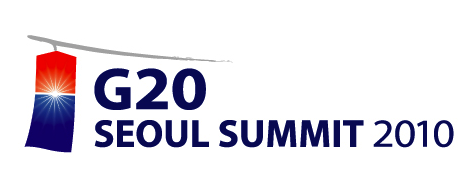By blade
Created 19/10/2010 - 20:04
WTO chief Pascal Lamy warned just days before a key meeting of G20 finance ministers that economic recovery could be put in "serious jeopardy" by "uncooperative" behaviour on foreign exchange markets.
"The hard-won path towards stability and trade-led recovery could be put in serious jeopardy by uncooperative currency behaviour," Lamy told a meeting of the World Trade Organisation's 153 members on Tuesday.
The WTO director-general said the response to fears that economies might seek a competitive advantage by inducing a favourable exchange rate was a matter for the International Monetary Fund (IMF) rather than the WTO.
"But I nevertheless thought that I would share this concern with you because I believe history will judge us harshly if our collective efforts towards exiting the economic crisis were to be frustrated by short-sighted individual rent seeking," Lamy said.
Group of 20 finance ministers and central bankers are expected to discuss volatile foreign exchange markets at a meeting in South Korea on Friday, ahead of a G20 summit next month.
Some analysts fear a protectionist "currency war" in which major economies seeking to export their way out of the downturn try to cap or lower their currencies to keep the prices of their exports down.
Hours before the informal meeting of the WTO's rule-making Trade Negotiations Committee, Lamy told journalists that "there is a risk of friction and it is real."
"Exchange (rates) are moving more for the moment than they had a few months ago," he added. "There is a certain amount of disorder."
Lamy said a multilateral approach was the best way of containing the risk, beginning with a common diagnosis of the origins of the instability in foreign exchange markets.
He pointed out that if a country used exchange rates to boost its competitiveness, it placed political pressure on others.
"There's a risk of reaction and counter-reaction, which is typically what we have managed to avoid," he explained.
The United States and Europe claim that China, the world's biggest exporter, is keeping its currency grossly undervalued, while the US dollar has fallen and Brazil has intervened to halt the real from appreciating.
The World Bank said in a report on Tuesday that a stronger yuan exchange rate was in China's interests and would help the country rein in inflation and boost domestic consumption.
It said that "developed and developing countries worldwide are bent on avoiding stronger exchange rates, as concerns about weak foreign demand -- and a limited scope for exports to boost growth -- intensify."
The report on East Asia's developing economies -- which excludes Japan, South Korea, Singapore, Hong Kong and Taiwan -- said China remains the region's economic powerhouse, with projected growth of 9.5 percent in 2010.
Source URL: http://www.france24.com/en/20101019-currency-turmoil-could-jeopardise-recovery-wto-chief
"The hard-won path towards stability and trade-led recovery could be put in serious jeopardy by uncooperative currency behaviour," Lamy told a meeting of the World Trade Organisation's 153 members on Tuesday.
The WTO director-general said the response to fears that economies might seek a competitive advantage by inducing a favourable exchange rate was a matter for the International Monetary Fund (IMF) rather than the WTO.
"But I nevertheless thought that I would share this concern with you because I believe history will judge us harshly if our collective efforts towards exiting the economic crisis were to be frustrated by short-sighted individual rent seeking," Lamy said.
Group of 20 finance ministers and central bankers are expected to discuss volatile foreign exchange markets at a meeting in South Korea on Friday, ahead of a G20 summit next month.
Some analysts fear a protectionist "currency war" in which major economies seeking to export their way out of the downturn try to cap or lower their currencies to keep the prices of their exports down.
Hours before the informal meeting of the WTO's rule-making Trade Negotiations Committee, Lamy told journalists that "there is a risk of friction and it is real."
"Exchange (rates) are moving more for the moment than they had a few months ago," he added. "There is a certain amount of disorder."
Lamy said a multilateral approach was the best way of containing the risk, beginning with a common diagnosis of the origins of the instability in foreign exchange markets.
He pointed out that if a country used exchange rates to boost its competitiveness, it placed political pressure on others.
"There's a risk of reaction and counter-reaction, which is typically what we have managed to avoid," he explained.
The United States and Europe claim that China, the world's biggest exporter, is keeping its currency grossly undervalued, while the US dollar has fallen and Brazil has intervened to halt the real from appreciating.
The World Bank said in a report on Tuesday that a stronger yuan exchange rate was in China's interests and would help the country rein in inflation and boost domestic consumption.
It said that "developed and developing countries worldwide are bent on avoiding stronger exchange rates, as concerns about weak foreign demand -- and a limited scope for exports to boost growth -- intensify."
The report on East Asia's developing economies -- which excludes Japan, South Korea, Singapore, Hong Kong and Taiwan -- said China remains the region's economic powerhouse, with projected growth of 9.5 percent in 2010.
Source URL: http://www.france24.com/en/20101019-currency-turmoil-could-jeopardise-recovery-wto-chief

댓글 없음:
댓글 쓰기